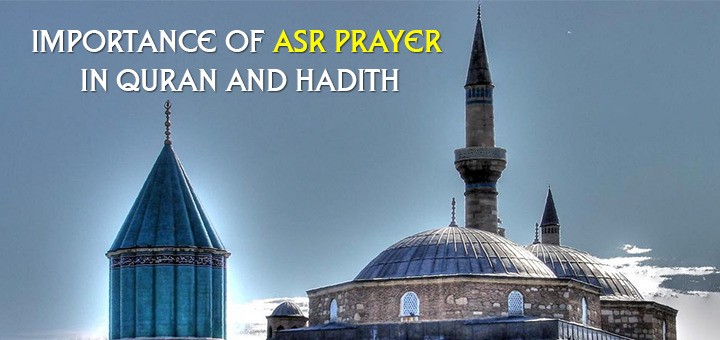Islamic prayer, salah, or namaz is a particular saying and action, which start with Takbeer (saying Allah-u-Akbar) and ends with Tasleem (saying As-Salam u Alikum Warahmatullah).
Islamic prayer is such a symbol and fundamental deed of religion, which is directly connected with the reality of belief to such a depth that if we don’t pray, we enter the fold of disbelief.
So it is an act that makes a distinction between belief and disbelief, and those who abandon or give up the prayer go out of the fold of belief.
The Wisdom Behind The Ordainment Of Prayer:
Among the many wisdoms of daily prayer are the following:
- Salah makes a person aware of his real life and identity, which is his being a true slave of his Supreme Lord, Allah (SWT).
- Islamic prayer creates in a person’s mind that the only real Lord, Helper, and Bestower of favors and bounties is Allah (SWT) (God).
- Islam prayer gives a person an opportunity to return in repentance to his God and give up all sins he has committed.
Which one is the Middle Prayer?
In the Holy Quran, it has been notably stressed to guard and care for the Salat-ul-Wusta (the middle prayer). Allah (SWT) says:
“Guard strictly (five obligatory) As-Salawat (the prayers) especially the middle Salat (i.e. the best prayer – ‘Asr).” (Al-Baqarah 2:238).
There is a great dispute between the jurists and the scholars of Hadith in specifying which prayer is the Salat-ul-Wusta (the middle prayer).
Rationally, any of the five compulsory prayers can be stated as the middle prayer. But in the light of the sound and authentic narrations and sayings is that it is the Asr (afternoon) prayer.
The Prophet (PBUH) said:
“Salat-ul-Wusta (the middle prayer) is the Asr prayer.” (Muslim 631).
Therefore, the importance of Asr prayer is greater than other daily prayers.
Also Read: The Significance of Friday & Jummah Prayer
The Time of Asr prayer:
The time of Asr prayer starts from when the length of an object’s shadow is equal to the true length of that object until sunset. Many Muslim brothers and sisters living in non-Muslim countries find it really hard to determine prayer times. Global Prayer time-Azan Alarm is a very helpful application that lets you know about Islamic prayer times all over the world.
Allah’s Messenger (PBUH) used to pray Asr when the sun was still hot and high, and if a person were to go to the suburbs (of Al-Madinah) he would be able to reach it while the sun was still hot and high.
The Prophet (PBUH) also used to offer the Asr prayer as soon as the shadow was equal to the length of the person or object by which it was measured. The inhabitants of Quba, due to work and other preoccupations, performed the prayer later.
That is to say, it is allowed to offer it when the shadow comes to be twice as long as the corresponding object. The best approach in this matter is to perform the Asr prayer with the least possible delay, as soon as the shadow grows equal in length to the height of any object by which it is measured because this is the practice of our beloved Prophet (PBUH).
Also Read: Prayer – A Direct Line To God
Importance of Asr Prayer:
The Asr prayer ought to be offered within its time. Not praying or delaying it from its prescribed time is a tremendous loss signifying the importance of Asr prayer.
The Prophet (PBUH) said:
“Whoever misses the Asr prayer, then it is as if he has been robbed of his family and his wealth.” (Al-Bukhari 552).
If just missing the time for a single prayer causes so much loss, which is as if the family and wealth or property of a person are destroyed, then how about a man who does not perform prayers at all; how much loss, grief, and misery will he face? How about a man who asks what if I don’t pray? Will I go to Hell if I don’t pray? The answer to all of these questions is Yes because of the aforementioned reasons.
On the day of Khandaq (also known as the Battle of Trench) Allah’s Messenger said:
“May Allah fill their homes and graves with fire, just as they distracted us from the middle prayer.” (Ibn Majah 684).
The very tongue that had remained silent at the trials and hardships of Taif, was forced to invoke Allah’s wrath upon the invading polytheists when the events of the battle of the Confederates (the battle of Trench) distracted the believers from offering the Asr prayer in time.
He (PBUH) was so angry at the failure, that he besought Allah to fill the infidels’ homes and graves with fire. Certainly, in it is ample nourishment for the thought of those who totally miss their prayers just out of laziness, or because of their indulgence in sports or business activities.
How reprehensible will this act of theirs be to Allah and His Messengers (PBUH)? May Allah (SWT) save us all from His wrath and curse.





